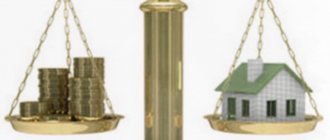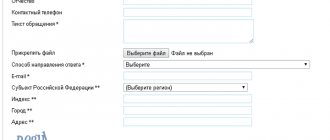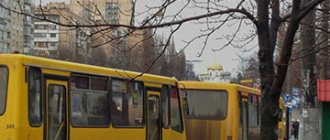The communal war between consumers and management companies has been going on for several years. While its finale is not yet looming on the horizon. It cannot be said that the blame lies entirely with one person.
It won't be true. Information about inflated tariffs, insufficiently hot water, and the complete lack of paid services is reported regularly from various parts of the country. But the people also have “response measures”. A large segment of the population has long and consciously been engaged in so-called communal terror - using resources, but not paying for them. Philosophy, of course, is different in each case, perhaps such people even fight for something. But the picture remains depressing: huge debts, illegal use of resources, disobedience to regulatory authorities; suffering neighbors unwittingly involved in hostilities. It turns out that the housing and communal services sector is constantly in a fever, and as a result, all of us.
How to live in such conditions? Any military action involves preparation, theory, strategy and practice. I am again on the side of the law, again I am convinced that knowledge of legal norms is the basis of a peaceful and comfortable life, even when it comes to Russian housing and communal services, because it is easier to apply for recalculation (how to write an application for recalculation of utilities using the link) and resolve the issue than to spend forces are in the wrong direction.
Working with debtors to pay utility bills
Let's start with the fact that paying for utilities is the current responsibility of those citizens who use government resources: water, electricity, gas, heat. For those who live in a dense forest, in a makeshift hut without heat, water and light, you don’t need to read further, the issue of resource provision has not affected you. And the obligation of everyone else to pay every month for the consumption of all these components of modern comfort. Without any alternatives.
People who refuse to pay utility bills for more than 3 months are given the “title” of debtor. How honorable it is, decide for yourself. And I’ll tell you how problematic it is.
From the moment the new status appears, work begins in relation to the “problem” apartment. Already from the second month of late payment, penalties begin to be charged, about writing off penalties for utilities using the link. The accrual of penalties for late utility payments is permitted by Article 155 of the RF Housing Code, clause 14. Penalties are accrued for each day of delay, their amount depends on the number of months that were unpaid. So, from the second to the third month, the percentage of penalties is 1/300 of the Central Bank refinancing rate, starting from the fourth month - it rises to 1/130. I never tire of repeating that not paying for utilities is not a solution at all, it’s rather an elevator into a huge abyss of problems that you didn’t even suspect about before.
If the reason for your debt is the inadequate quality of utilities, it is much cheaper to pay for them and then record the poor quality of services. There are very specific evaluation criteria. You can order an examination and receive a document stating that:
- the water is not hot or clean enough;
- pressure is outside the norm;
- The batteries are cold or the lights are turned off too often.
Through the court, you can achieve not only a recalculation, but also compensation for additional losses. And if the debt accumulates, the losses will only grow, no one will make any recalculation, moreover, you will pay not only the amount of the debt, penalties, but also fines - the amount can be huge. It is better to analyze a lawsuit for non-payment of utilities with our housing lawyer so that losses are minimal.
Notice of termination of contract
In accordance with clause 2.1. Contract start date: August 20, 2017, completion date: September 20, 2021. Cash in the amount of RUB 25,000. arrived in my bank account only on September 10, 2017, the work site was not provided, nor were the materials. On September 12, 2017, the advance payment was transferred to the Customer’s bank account.
On August 18, 2021, a contract was concluded between EnerBLIS LLC and me for construction work, namely: plastering walls, erecting partitions in accordance with Appendix No. 1 to the Agreement, laying tiles, installing plumbing. In accordance with the terms of the above agreement, the work is carried out at the address: Kirov, st. Vasnetsova, 15. Materials and tools are provided by the Customer; before the work is completed, an advance payment of 20% of the contract price is made, i.e. 25,000 rub.
Procedure for disconnecting utilities for non-payment
So, after a delay of 3 months, pre-trial work begins with the debtor. First, they try to negotiate with him, explain why it is more profitable to pay off the debt, find out why he does not pay for housing and communal services, offer to draw up a debt repayment schedule - it happens that they agree at this stage and start repaying the debt. But it happens that the debtor does not make contact at all, does not open the door, or does not respond to written notices about disconnecting utilities.
Then the claim work begins. This work can be carried out in different ways:
- the numbers of debtor apartments are published on the payment slips of all residents of the building;
- debtors are sent red payment receipts;
- lists of debtors are posted in the lobby of an apartment building with requests to repay the debt;
- The district media can also publish lists of defaulters indicating debts - from this moment on, your debts are no longer a secret, now all the neighbors know about your problems, the aspect of “moral influence” is included - this is a method permitted by law.
Some particularly active retired social activists, there are such in every home, begin to carry out their work - at every opportunity, voice their dissatisfaction publicly, branding them, so to speak, with shame.
If this does not have the desired effect, a legal shutdown mechanism is launched:
Letter of termination of contract (sample)
Dear readers! The article talks about typical ways to resolve legal issues, but each case is individual. If you want to find out how to solve your particular problem , contact a consultant:
Each individual case has its own argument for severing contractual relations, so specifying them is not possible. But the process of any contract is terminated upon expiration of the stipulated period, in addition to contracts that do not have a term, in two ways.
We recommend reading: Is it possible to buy a house with land using maternal capital?
Utility Shutoff Notice
Article 118 of the Decree of the Government of the Russian Federation No. 354 of 05/06/2011 allows management companies, homeowners' associations, housing cooperatives and other representatives of the executive power of a particular building to limit or even suspend the provision of utility services.
The Contractor shall send written notice to the debtor that it intends to limit or suspend the provision of any service or services. This notification must be delivered against signature or sent by registered mail, always with a description of the attachment. After serving the notice, the executor waits 30 days in the hope that the tenant will decide to pay off his debt. If this does not happen, utilities in a particular apartment are first limited, then their supply is blocked altogether.
What utilities can be turned off?
According to Article 119 of the Government Decree, cold water supply and heating cannot be limited or turned off. And everything else: hot water, electricity, sanitary equipment, electrical equipment, mechanical equipment are subject to locking, both in the apartment and outside it.
Power cut for non-payment of utilities
Electricity can be disconnected for non-payment only if the required steps are followed.
First, the debtor is notified that he has a debt regarding electricity, indicating the amount of the debt and accrued penalties. If after 20 days the debtor has not attempted to repay the debt, has not applied for restructuring, or has not repaid the debt in full, a notice of penalty is sent in the form of a restriction on the supply of light. Such notification must be sent by registered mail or delivered in person. Wait 3 days. If the debtor still has not attempted to resolve the problem of his debt, sanctions come into force and the defaulter receives a new notice. Only after this protocol is followed will there be a complete power outage. If the contractor does not wish to comply with this procedure, the defaulter has the right to challenge the disconnection and demand compensation for damage. The court, most likely, will qualify the actions of the management company as an independent settlement of the issue, will side with the tenant and determine to compensate him for the damage caused in full. Understanding this, the executive municipal authorities strive to comply with all legal norms very scrupulously, so as not to give the debtor a chance to apply for compensation to the court.
Shutting off sewerage for non-payment of utilities
There is Article 21 of the Federal Law No. 416 dated December 7, 2011 “On water supply and sanitation.” Is it possible to block water drainage in a specific apartment? Simply put, is it possible to put a plug in the sewer pipes related to the debtor’s apartment. After this, liquid waste will not be removed from the apartment. The effect of the “plug” will not be limited to the toilet. The washing machine and dishwasher won’t be able to work, you won’t be able to take a bath, and the water will stop flowing from the sink. A very effective method. Such conditions are not at all compatible with normal life. You won’t be able to “get used to” them.
The sewer blocking rules state that a plug on a sewer outlet makes a living space uninhabitable and violates sanitary and epidemiological safety.
In this regard, the management company for such actions can be held liable for violation of licensing requirements. Judicial practice on the issue: Resolution of the Supreme Court of the Russian Federation dated 03/05/2019 N 47-AD19-2
Procedure for turning off water for non-payment
As in other cases, the shutdown begins with a notification. The debtor is notified that he has a debt and can pay it off within 30 days. The warning is delivered by registered mail or delivered in person against a signature. If the debtor has not responded in any way, a new notice of intention to block the receipt of services is sent. The debtor is given 3 more days “to think” and “to do something.” Only after this the water supply is stopped - the block is valid for 30 days. During this time, the management company or homeowners association, in a word, the executor, files a lawsuit to recover funds.
It is important that the notice contains:
- not the total amount of debt, but detailed for each type of unpaid services
- the notification must indicate whether it is technically possible to first limit the provision of the service, and only then suspend it
Arbitrage practice
In some cases, defaulters or public housing estates try to challenge in court the restriction or suspension of water drainage for non-payment of utilities . Let's consider cases when the court satisfies their claims or rejects them.
In the Resolution of the Thirteenth Arbitration Court of Appeal dated January 20, 2015 in case No. A56-19200/2014, the judge ruled in favor of the State Housing Property Inspectorate, which, after an unscheduled inspection, issued an order to the housing cooperative. The GZHI order was based on the fact that the housing cooperative installed additional equipment that was not provided for in the project, the Rules and Standards for Housing Maintenance, the Housing Code of the Russian Federation and clause 1.6 of the Rules and Standards for the Technical Operation of the Housing Stock (Decree of the State Construction Committee No. 170 of September 27, 2003).
The housing cooperative tried to challenge this order of the Housing Housing Inspectorate in court, since many apartment building residents did not pay for utilities for a long time. As a result, the cooperative had to install “plugs” on the debtors’ individual risers and cut off individual apartments from the sewerage system. But the court refused to satisfy the housing cooperative’s demands, basing its decision on the fact that:
- the cooperative had to separately calculate the debt for each type of corporate capital and, before the restriction, notify the debtors, demanding to repay the debt (clause 118 of the RF PP No. 354);
- engineering systems that are part of the common property of the owners of premises in apartment buildings must comply with sanitary and epidemiological safety requirements (clause 9.2 of SanPiN 2.1.2.2645-10).
Thus, the deliberate suspension of water drainage due to the work carried out by housing cooperatives to install “plugs” on individual risers makes the apartment building unsuitable for habitation and does not comply with sanitary and epidemiological safety standards.
However, there is a completely different court decision in a case with a similar plot. Thus, in the Resolution of the Thirteenth Arbitration Court of Appeal dated February 5, 2015 in case No. A56-27564/2014, the judge ruled in favor of the housing cooperative. The court considered that upon prior notification to the debtor of the introduction of special measures in relation to it, the cooperative has the right to limit or suspend water disposal.
The court found, based on the conclusion of the forensic examination center, that the actions of the housing cooperative to install “plugs” to limit water drainage to the engineering systems of the apartment building do not change the parameters of the residential building, do not lead to damage to the debtor’s property and do not violate sanitary and epidemiological safety requirements . Thus, living conditions remained suitable, and the remaining owners of the premises in the house were not affected by the actions of the cooperative.
It is important to note here that the installation of “plugs” to limit water drainage can only be done in those sections of utility lines that do not belong to the common property of the owners of premises in the apartment building. Also, the installation of “plugs” should not lead to damage to the debtor’s personal property.
Read more judicial practice on other cases and issues here
What will happen to an unauthorized connection?
The widespread practice of unauthorized connection is a gross offense. Similar facts can be revealed during an inspection by RSO employees. They draw up a written document. The document is transferred to the police, then the case materials are sent to the magistrate, who makes a decision to impose an administrative penalty in the form of a fine. The penalty is:
- for individuals from 1500 to 2000 rubles;
- for officials – from 2000 to 3000 rubles;
- for legal entities – from 30 to 40 thousand rubles.
If, during the consideration of the case, facts of theft of a resource (for example, electricity) are revealed, the process will acquire the status of a criminal one, where the punishment will be associated with imprisonment.
How to write a notice of termination of a service contract
Paid services mean an agreement under which both parties are obliged to fulfill certain obligations to each other (for example, one company provides monthly cleaning services, and the second must perform other offset work).
Based on this, if the notification does not meet the above requirements, then the other legal entity can continue to fulfill its contractual obligations, and if the party to the contract refuses to accept the services or goods provided, then penalties can be safely assessed against it.










